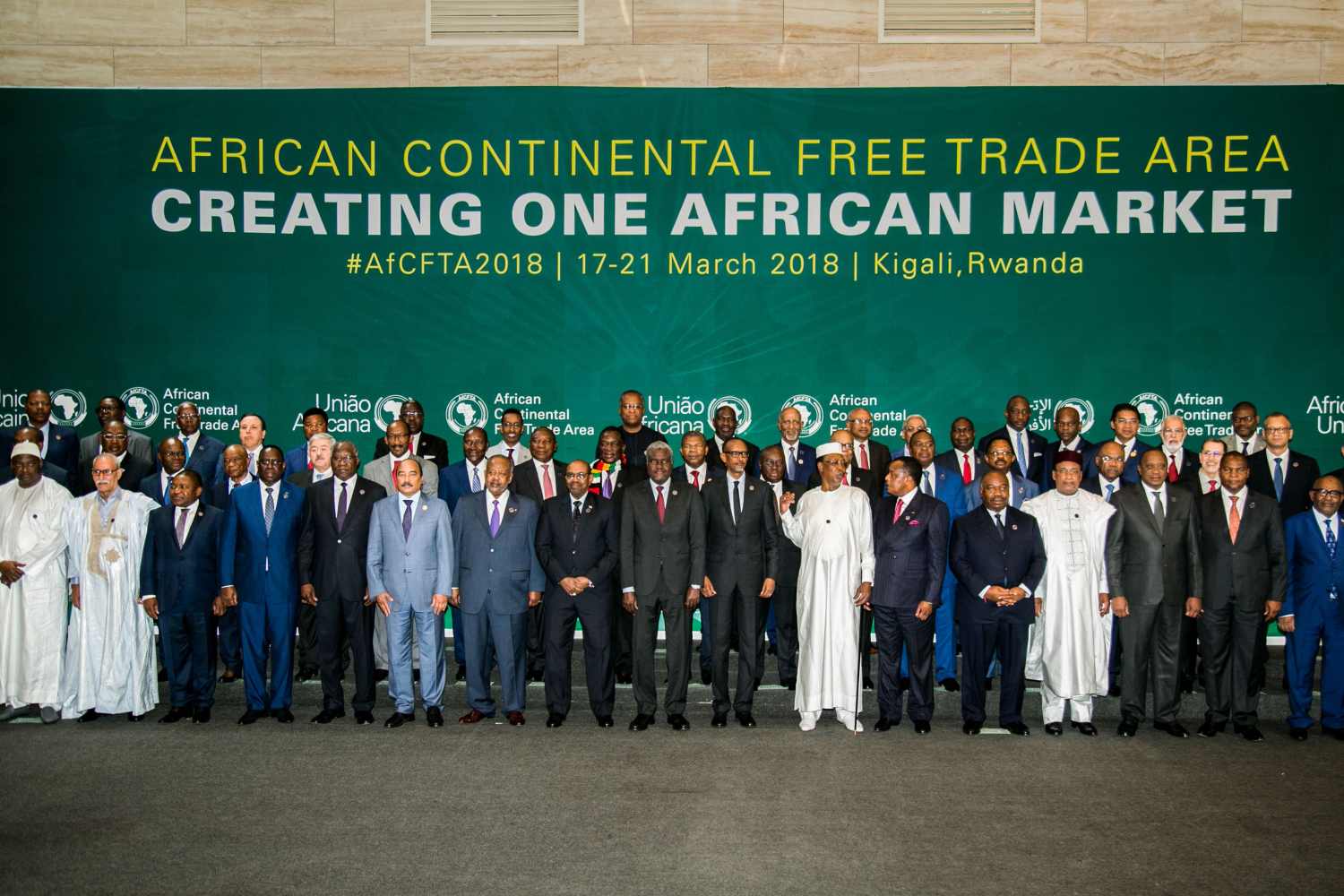After some delay and prevarication, Nigeria finally signed the Africa Continental Free Trade Agreement (AfCFTA) at the weekend. President Muhammadu Buhari signedthe agreement on Sunday, July 7 during the 12th Extra Ordinary Summit of the African Union [AU] on launch of the Operational Phase of the AfCFTA in Niamey, capital of Niger Republic. The agreement is intended to bring together all African countries, with their 1.2 billion people, into a common market. This market has an estimated value of $3.4 trillion and it is expected to emerge as one of the biggest market blocs in the world.
In signing the agreement, Buhari called for an increase in the banding together of the signatories to attract investment, promote growth of inter and intra African trade as well as fight smuggling. With Nigeria signing the AfCFTA treaty, Eritrea is the only AU member country that is yet to sign. Meanwhile, Ghana was elected to host the AfCFTA Secretariat.
AfCFTA is a trade agreement which was initially launched by 25 member nations of the African Union with the goal of creating a single market for themselves. This involves free movement of goods and services as well as a single currency. AfCFTA was signed in Kigali, Rwanda, on March 21,2018. As at July 2019, an additional 29 countries have joined to raise the membership to 54. Ratification by 22 countries was required for the agreement to come into force. The agreement will function as an umbrella to which protocols and annexes will be added. Negotiations continued in 2018 with Phase II, including Competition Policy, Investment and Intellectual Property Rights. A draft shall be submitted for the January 2020 AU Assembly.
Kenya and Ghana were the first countries to deposit the ratification instruments on May10, 2018 after ratification by their parliaments. With ratification by Sierra Leone and Saharawi Arab Democratic Republic on April29, this year, the threshold of 22 ratifying states for the free trade area to formally exist was reached. As a result, AfCFTA came into force on May30, 2019. Outstanding issues like the trade concession agreement and rules of origin remain under negotiation. During weekend’s AU summit meeting in Niger Republic, AfCFTA formally entered its operational phase.
It is to be recalled that President Buhari declined last year to sign the continental trade pact,during a similar meeting of the AU in Kigali. He cited the need for further consultation withNigeria’s various stake-holders. At that time,the various stakeholders in Nigeria were singing different tunes with respect to AfCFTA’s promise to this country. While proponents cited the numerous benefits which a continent-wide trade bloc would offer Nigeria, opponents cited the dangers inherent in further opening up the Nigerian economy to the vagaries of institutionalised infiltration and domination by foreign business interests. This was because most of the signatories of AfCFTA do not presently have viable manufacturing sectors that would sustain intra-African trade. Similarly, Nigeria Labour Congress [NLC]also opposed the country’s participation on the grounds that its implementation would lead to job losses for Nigerian workers.
With Nigeria’s signing of the agreement,we expect that all the bureaucratic, legal, administrative and other preparations will be made to prepare Nigeria fully for participation in a continental free trade area. For, as the biggest economy on the continent, Nigeria stands to gain from any positive dividend in AfCFTA but it would also suffer proportionally from some negative fall-outs inherent in free trade agreements. With AfCFTA, Nigeria will be dealing with participating member countries, some of whom could be used as surrogatesby giants of international trade.
Just as was the case with ECOWAS 44 years ago, the expected benefits of AfCFTA outweigh the likely negatives. The task ahead therefore, for the Buhari administration and all successor administrations in Nigeria, is to work hard to enjoy the benefits of the African free trade agreement and to also put in place measures and mechanisms to mitigate the negative impacts.



